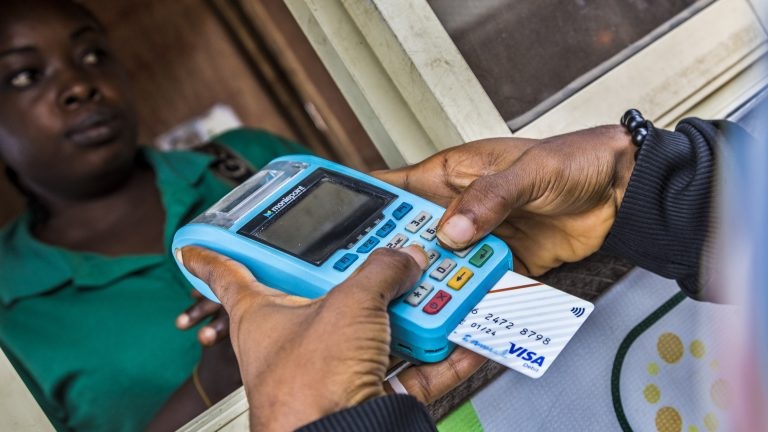
Moniepoint, a Nigerian Fintech company that provides an all-in-one payments, banking, and operations platform for businesses and their customers, in its latest report titled “The Informal Economy Report 2024”, highlighted key insights on Nigeria’s informal Economy.
Moniepoint reveals that the informal economy plays a crucial role in Nigeria’s daily life, yet much of it remains underexplored or misunderstood. To understand the current fabric of the Nigerian informal economy, the fintech delved into the sector by speaking with hundreds of business owners and analyzing data from over 2 million businesses across Nigeria.
One notable key insight on the report is that most businesses in Nigeria’s informal economy still prefer cash payment. The consensus that cash is king due to its ease of use in low-trust environments, is true for small businesses in the country, as the data reveals that despite the rise of digital payments, 1 in 2 businesses in Nigeria said they prefer to receive cash over digital payments. The preference for cash was connected to safety and ease of doing business.
Register for Tekedia Mini-MBA edition 17 (June 9 – Sept 6, 2025) today for early bird discounts. Do annual for access to Blucera.com.
Tekedia AI in Business Masterclass opens registrations.
Join Tekedia Capital Syndicate and co-invest in great global startups.
Register to become a better CEO or Director with Tekedia CEO & Director Program.
For businesses that needed to use cash to pay for the goods and services they sold, Cash was their preferred means of receiving payments. Digital payments accounted for 46.2%, split between card payments and transfers.
The report also highlights Retail and General Trade as the leading category in Nigeria’s informal economy, containing 24% of all businesses. Food & drinks, Fashion and Beauty, and Agriculture accounted for 58.6% of all businesses in Nigeria’s informal market. By transaction value in Naira, these businesses accounted for over half of Nigeria’s informal economy at 53.6%.
In Sub-Saharan Africa, a significant portion (85%) of employment is informal and predominantly young. Moniepoint data reveals that nearly 58% of Nigeria’s informal workforce is under 34 years old. The largest group, constituting 43%, is between 25 and 34 years old. The second largest group, aged 35 to 44, represents 28.9% of the sector in Nigeria. This youthful energy presents a tremendous opportunity for socioeconomic transformation through innovation, entrepreneurship, job creation, and wealth generation.
Individuals aged 25 to 34 own the most businesses across, industries, accounting for 38.2% of businesses in Retail & General Trade, with nearly half (47.2%) of all business owners in this industry being under 34 years old.
Collectively, businesses in the informal market contribute over half of Nigeria’s GDP. Despite this, their actual profit remains modest, with most businesses making less than N250,000 monthly. Only about 1.3% of businesses in Nigeria’s informal economy earn above N2.5 million monthly.
However, put together, businesses in Nigeria’s informal economy, contribute over half of the country’s GDP. This is evident in their revenues, with the bulk of them (72.3%) hitting monthly revenues of over N1,000,000 monthly. But their actual profit deviates from these high figures.
About half (51.6%) of business owners cited unemployment as the reason for starting a business. Insufficient income from formal employment was the primary reason for starting a business among women. Despite this, 99.3% of these business owners would continue running their businesses if they received a gift of N20 million. Passion, although the least common reason for starting a business, significantly impacts longevity, with 50% of businesses over five years old starting with passion.
It is worth noting that most businesses in the informal economy earn money for daily living expenses and feeding, with additional expenses including school fees and transportation. Only three out of ten businesses choose to reinvest in their business as their primary expense.
For many business owners, loans help with restocking, expansion, and keeping the business afloat in unfavorable times. But these businesses aren’t as lenient with their retail customers. Credit for these businesses includes BNPL offerings to their customers providing goods and services for repayment at a later date. Business owners cited low trust from previous bad experiences for not extending these services to their customers.
Savings are a huge part of business in the informal market, as Moniepoint data reveals that 92.4% of businesses in the informal market save money. Over 9 out of 10 of these business owners say they save money, as these savings are tied to regular responsibilities that can’t be met with immediate cash flow.
The informal economy also represents a crucial avenue for women’s economic empowerment in Nigeria and across Africa. For every 10 working women in Sub-Saharan Africa, 9 work in the informal economy. Moniepoint data shows that women own 37.1% of businesses in this sector. Despite challenges in equity, these data points highlight the importance of the informal economy for women.
Conclusion
The informal economy in Nigeria is a vibrant and essential sector that holds vast potential for driving socio-economic development. By understanding these businesse unique challenges and opportunities, Moniepoint aims to help them thrive and contribute significantly to Nigeria’s economy.
This latest report underscores the company’s commitment to unlocking the potential of Nigeria’s informal economy and fostering an environment where these businesses can grow and succeed.



